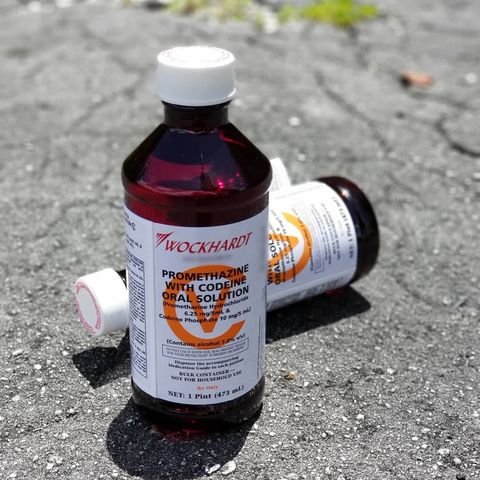Actavis Cough Syrup was a prescription medication known for its effective combination of promethazine and codeine, intended to treat symptoms such as coughs and colds. Originally produced by Actavis, the syrup became widely recognized not just for its therapeutic effects but also for its distinct purple color and sweet taste. This unique combination made it a standout product but also led to its misuse outside medical purposes.
Table of Contents
The Medical Uses of Promethazine Codeine Syrup
The primary purpose of Actavis Cough Syrup was to alleviate discomfort caused by colds, allergies, and other respiratory illnesses. Promethazine acts as an antihistamine, reducing the effects of the natural chemical histamine in the body which can produce symptoms of sneezing, itching, watery eyes, and runny nose. Codeine, on the other hand, is an opioid that helps to reduce the urge to cough, providing relief to those suffering from a persistent cough.
The Rise and Fall of Actavis: A Timeline
Actavis Cough Syrup journey from a widely prescribed medication to being discontinued involves a complex history marked by increasing misuse. The syrup’s popularity peaked in the early 2000s, when it gained notoriety in the music industry and among celebrities. However, due to growing concerns over its recreational use and the potential for addiction, Actavis decided to halt its production in 2014 to prevent its association with the “sizzurp” culture — a concoction involving soda, candy, and cough syrup.
The Controversy Surrounding Actavis Cough Syrup
Actavis Cough Syrup became synonymous with the recreational drug “purple drank” or “sizzurp,” popular in certain music scenes. The combination of its euphoria-inducing ingredients with soda and candies led to widespread abuse, which glamorized its consumption but overshadowed its legitimate medical uses. The ease of access and the highly addictive nature of codeine made this syrup a staple in these subcultures, leading to serious health concerns including respiratory issues, sedation, and even fatal overdoses.
Due to the increasing misuse and health risks associated with codeine-based cough syrups like actavis cough syrup, regulatory authorities intensified crackdowns. Various states in the U.S. and countries worldwide began imposing stricter controls on the prescription and sale of codeine products. These measures included requiring better prescription monitoring, restricting sales, and educating the public and healthcare providers about the risks of abuse and dependency associated with such medications.
actavis cough syrup
Actavis Cough Syrup’s influence extended beyond medical fields into the realms of music and popular media, where it was often referenced by its street names like “lean,” “purple drank,” or “syrup.” Its portrayal in hip-hop music and its association with celebrities who endorsed its euphoric effects contributed to its cult status among fans. This cultural phenomenon not only increased the demand for the syrup but also sparked a broader discussion about substance abuse in entertainment industries.
The media coverage of Actavis often focused on high-profile users and tragic incidents linked to its abuse, which helped fuel its notoriety. Celebrities and influential artists were often cited as proponents of the “purple drank” lifestyle, which sometimes led to legal troubles or health crises that were widely reported. Such cases heightened public awareness of the dangers associated with cough syrup abuse and influenced public opinion and policy regarding prescription drug misuse.
Alternatives and Current Trends in Cough Treatment
With the growing concern over opioid abuse, medical professionals and patients have turned to alternative cough treatments that do not involve narcotics. These include over-the-counter (OTC) medications like dextromethorphan (DXM), which is less potent but also less prone to abuse, and natural remedies such as honey and herbal teas, which can soothe the throat without the side effects associated with opioids.
The healthcare industry has made significant advances in developing safer and more effective cough treatments. This includes the reformulation of cough syrups to exclude opioids and the use of new drug delivery systems that minimize abuse potential. Furthermore, patient education programs and stricter prescribing guidelines have been implemented to enhance safety and ensure that cough treatments are used appropriately and effectively.
Guidance and Advice for Consumers
For those prescribed cough syrup containing codeine or other potent ingredients, it is crucial to follow the doctor’s instructions carefully. This means taking the prescribed dose at the correct times and not sharing the medication with others. It is also important to be aware of the potential for dependence and to discuss any concerns with a healthcare provider.
If individuals come across Actavis or any similar codeine-based cough syrup, they should handle it responsibly. This includes ensuring it is stored securely away from children and never purchasing medication without a prescription. Reporting illegal sales and educating others about the risks of misuse are also important steps in curbing the abuse of such products.
Conclusion
The legacy of Actavis Cough Syrup serves as a reminder of the complexities surrounding prescription medications in modern society. As regulations continue to evolve and awareness of prescription drug abuse grows, it is likely that society’s perception of cough syrups will shift towards a more cautious and informed stance. The hope is that future innovations and regulations will prevent abuse while ensuring that patients still have access to effective relief from ailments like coughs and colds.
This blog post provides a detailed examination of Actavis Cough Syrup, offering insights into its medical use, cultural significance, and the controversies surrounding it. Each section is crafted to inform and engage readers, helping them understand the broader implications of this medication’s rise and fall.
Read More:natasha mae fester obituary
